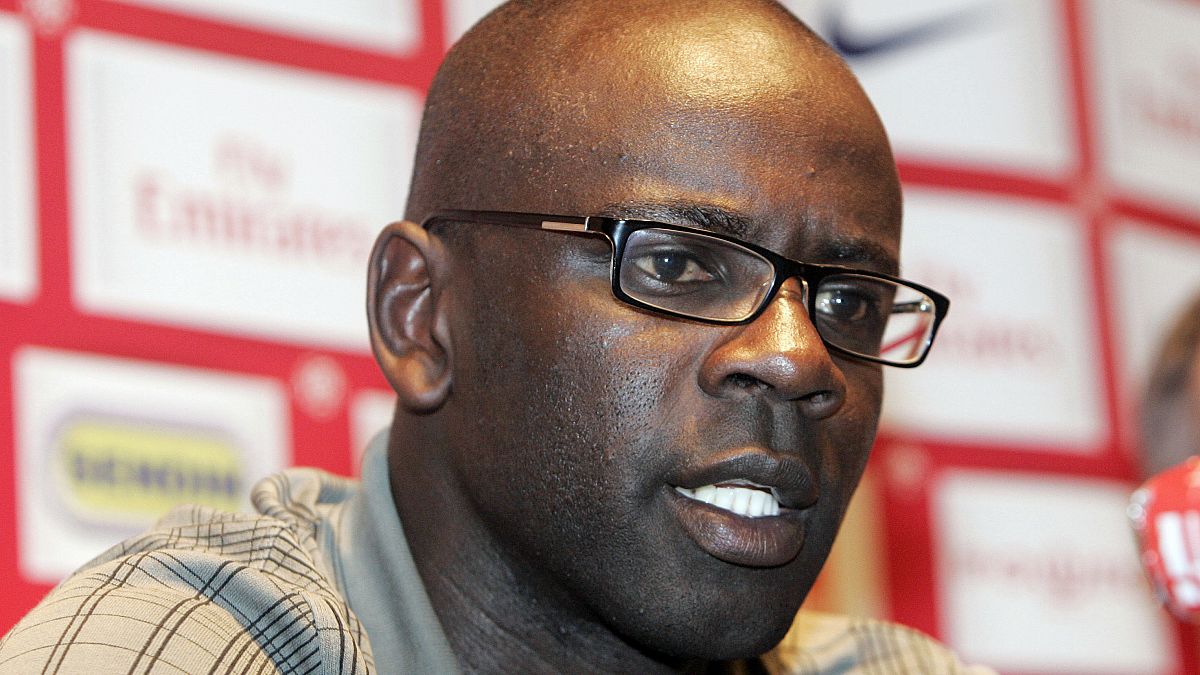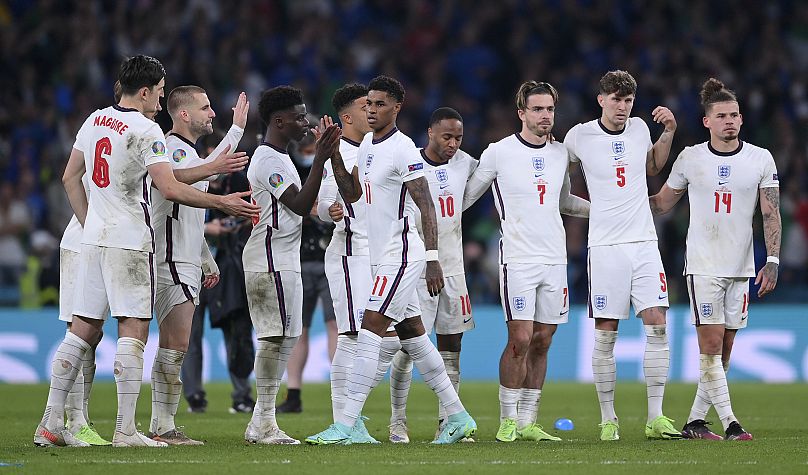Lilian Thuram is releasing a new book called 'White Thinking'
FOOTBALL NOW is a new show that brings to light some of the biggest issues, challenges, and debates within the global game.
Former World Cup winner, Lilian Thuram believes players should be brave in the fight against one of the most significant and recurring issues in football, racism.
In the latest edition of FOOTBALL NOW, Euronews speaks exclusively to France’s most capped player of all-time. The French legend has regularly spoken out against abuse and prejudice against players. It is a subject that is personal to Lilian as he experienced it himself during his professional career.
“I arrived in Italy in 1996 and even then, unfortunately, there were fans who made the monkey noise. I was already lucky enough to understand the mechanism of racism so I didn't suffer from that.”
Since hanging up his boots, Thuram has been trying to contribute to social change and released a book, 'White Thinking', drawing on personal experience and activist literature. He believes it’s important to educate society about the origins of racism and to encourage people, particularly white people, into thinking about societal structures and race.
“White people think that they are neutral in the history of racism. That is to say because they don't experience racism they think that in fact, they have nothing to do with it. And that's why, again, I'm trying to say that there is no neutrality.”
Previous examples
There is no denying that football has been rocked by racism on many occasions, including in 1988 when John Barnes famously backheeled a banana thrown onto the pitch in a match between Liverpool and Everton. Barcelona’s Samuel Eto'o said “No mas” [No more] and left the pitch, along with his teammates before returning after facing abuse against Real Zaragoza in 2006. Fast forward to 2011, one of the most controversial moments in the Premier League was when Luis Suarez racially abused Patrice Evra during Liverpool’s match against Manchester United.
More recently, England players Marcus Rashford, Bukayo Saka and Jadon Sancho were subjected to racist abuse on social media after missing penalties in the Euro 2020 final.
These are only a handful of examples of the discrimination experienced by footballers while doing their job.
“Racism has been on the rise over the last seven to eight years in football, in society, in the UK and across Europe,” explained Sanjay Bhandari, chair of football's equality and inclusion organisation, Kick It Out, “It travels along with other forms of hate based on gender, sexual orientation, religion, disability and so on.”
A YouGov poll earlier this year showed that fans also believe that there is a racism issue in Europe. Less than one-fifth of supporters in each of the nine countries polled think that fans are doing enough to tackle racism. The figure is lowest among ethnic minority fans in Britain and Italy, of whom only one in ten think fans are doing enough to kick racism out of football.
How has football reacted to racism?
Fifa and the European Union Commission have launched the EU Action Plan For Racism, running until 2025, to address this issue. It sets out a series of measures to step up action as well as ensuring full social inclusion for people from racial minorities or ethnic groups.
Fifa has taken the steps to lead the global fight against racism. It fined Hungary €180,000 and banned fans from attending their country’s next game after they were found guilty of racist chanting at a World Cup qualifier. Additionally, they are strengthening their comprehensive anti-discrimination program, adding it is "a cornerstone in the governing body's foundation of proactive measures to promote equality in football."
Lilian highlights that what players do and say matters:
His message is clear, there is no place for discrimination in society, let alone on a football pitch.


